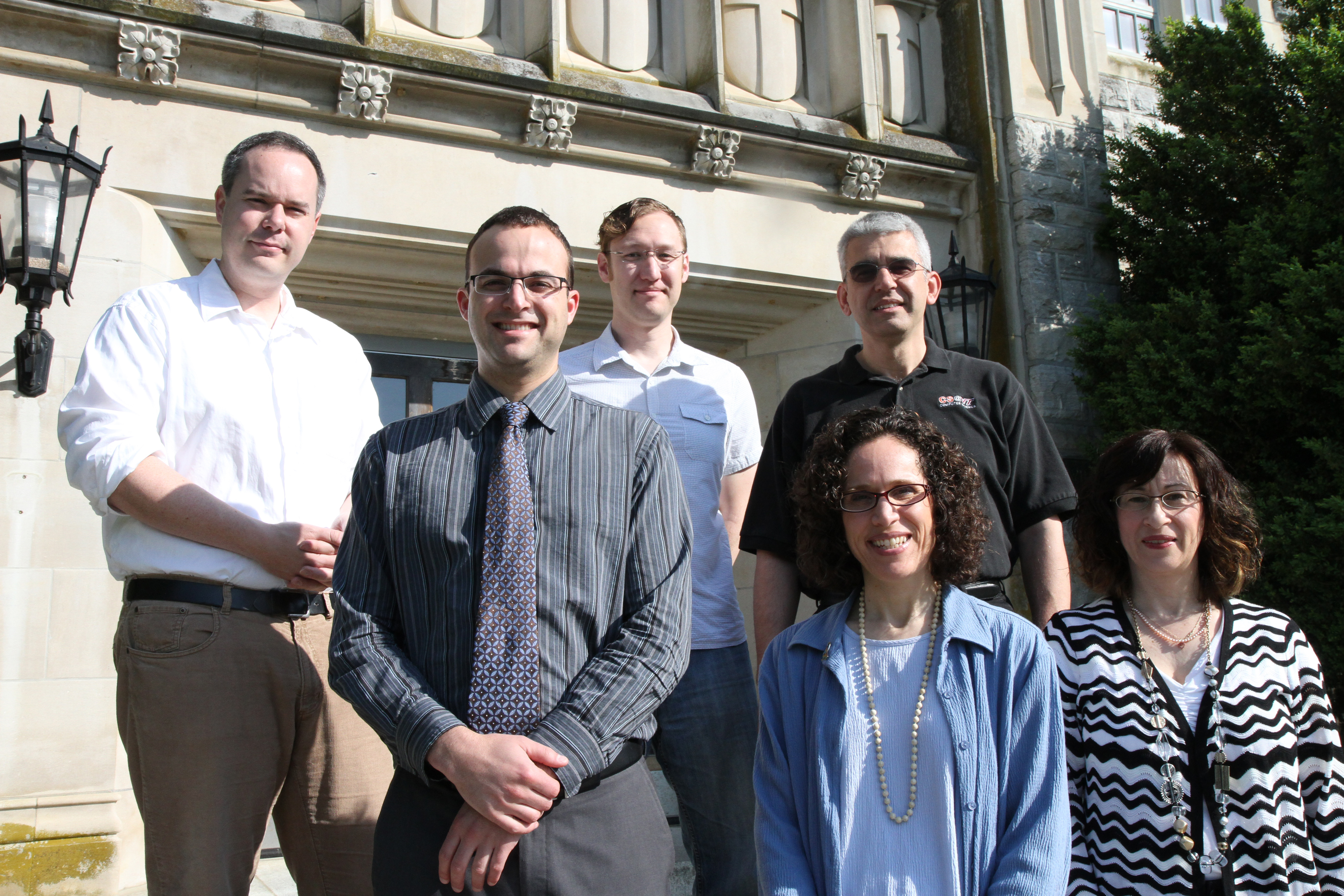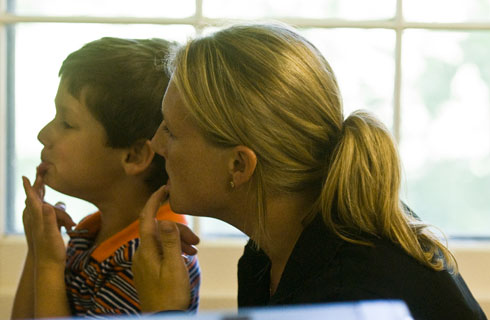Summer scholars program sparks interdisciplinary research projects

If the two of us are given $20 on the basis that I decide how it’s distributed, and I give you 50 cents, do you accept my gift or reject it, leaving us both penniless?
The study of this sort of value-based human decision-making, part of the growing field of neuroeconomics, will serve as a launch pad for Virginia Tech researchers involved in this summer’s Summer Scholars In-Residence program, sponsored by Virginia Tech's Institute for Society, Culture, and Environment.
Three psychologists, a computer scientist, and a neuroscientist, all affiliated with the Virginia Tech Center for Autism Research, will look at how people with autism view themselves, and how that affects their economic decisions.
Current theories of autism suggest that the disorder may be characterized by a deficit in building a model of the external world. John Richey, a clinical psychologist and assistant professor of psychology in the College of Science, is leading a team that will test a new idea: that autism may in fact be characterized by a more basic deficit, involving difficulties in building a model of one's self as a social entity in the world.
He and his team of colleagues — Angela Scarpa, an associate professor of psychology in the College of Science and director of the Virginia Tech Center for Autism Research; Ken Kishida, a neuroscientist and research scientist at the Virginia Tech Carilion Research Institute; Denis Gracanin, an associate professor of computer science in the College of Engineering; Andrew Valdespino of Miami, a Ph.D. student in psychology in the College of Science, who works closely with Richey, and Sheryl Ball, associate professor of economics in the College of Science, who serves as a consultant to the team — will seek to apply this new way of thinking to the study of value-based decision making in people with autism.
Using neuroimaging, the team will apply what’s known as economic game theory and examine the brain activity of adults on the autism spectrum while playing a computer game that requires value-based decision-making.
The computer controlled environment reduces many of the complexities of live social exchange, yet allows for the collection of hard, quantitative data about human decision-making, Kishida said.
Last summer, Kishida, Richey, and Scarpa, along with several other Virginia Tech psychologists, participated in the Summer Scholars-in-Residence program and looked at neurophysiological correlates of social functioning in autism. In that project, neural and autonomic data were simultaneously measured with self-reports to test whether physiological states could be used to diagnose social competence in people with autism.
This year, they say they decided to bring in the expertise of Gracanin to help with technical challenges that may arise during data collection.
“We are really excited because we think this is going to provide novel insight into autism spectrum disorders,” Kishida said.
Each year, approximately five groups of Virginia Tech researchers are selected from a pool of applicants to serve as the Institute for Society, Culture, and the Environment’s Summer Scholars, receiving $15,000 to $20,000 in research funding to explore new collaborative, interdisciplinary projects with the expectation that this research will lead to award of a major grant, explained the Institute’s director Karen Roberto. One or two groups are also selected to serve as Scholars-In-Residence, which carries a larger research funding award of $30,000 and allows the team to meet regularly in-person for three weeks.
2013 Summer Scholars are:
- France Belanger, professor of accounting and information systems in the Pamplin College of Business, will research “Improving Individual Mobile Information Privacy Practices.”
- Anthony Cate, assistant professor of psychology in the College of Science; Anderson Norton, associate professor of mathematics in the College of Science; Martha Ann Bell, professor of psychology in the College of Science; and Catherine Ulrich, assistant professor of education in the College of Liberal Arts and Human Sciences, will research “Validating Mathematical Ways of Operating with Neural Correlates.”
- Erica L. Grafsky, assistant professor of human development in the College of Liberal Arts and Human Science, Catherine Cotrupi, LGBTQ Coordinator in Multicultural Programs and Services, and Troy Abel, assistant professor in the School of Visual Arts, will research “Figuring it Out: A Participatory Approach to Developing an Intervention to Assist Sexual Minority Youth in Making Disclosure Decisions to Family.”
- James D. Ivory, associate professor of communication in the College of Liberal Arts and Human Sciences; Paul Herr, Virginia-Carolinas Professor of Purchasing Management in the Pamplin College of Business; Adrienne Holz Ivory, assistant professor of communication in the College of Liberal Arts and Human Sciences; and Robert C. Magee, assistant professor of communication in the College of Liberal Arts and Human Sciences, are researching, “Virtual Environment-Based Field Research on Economic and Consumer Behavior, Decision-Making, and Social Interaction.”
- Patrick S. Roberts, associate professor of public and international affairs in the Center for Public Administration and Policy, who works in the National Capital Region, will research, “The International Atomic Energy Agency: From Auditor to Inspector; An Organizational Approach to Understanding Inspection Regimes.”
- Anisa Zvonkovic, a professor of human development in the College of Liberal Arts and Human Sciences, and Katrina Powell, associate professor of English and Women and Gender Studies in the College of Liberal Arts and Human Sciences, will research “Identity and Place: Analyzing Qualitative Narratives and Interviews of Women Navigating Spatial and Identity Translations.”
2013 Summer Scholars-In-Residence are:
- John Richey, assistant professor of psychology in the College of Science; Angela Scarpa, associate professor of psychology in the College of Science; Ken Kishida, research scientist at the Virginia Tech Carilion Research Institute; Denis Gracanin, associate professor of computer science in the College of Engineering; and Andrew Valdespino, doctoral student in psychology, who will research “Neuroeconomics of Social Decision Making in Autism Spectrum Disorders."
Dedicated to its motto, Ut Prosim (That I May Serve), Virginia Tech takes a hands-on, engaging approach to education, preparing scholars to be leaders in their fields and communities. As the commonwealth’s most comprehensive university and its leading research institution, Virginia Tech offers 240 undergraduate and graduate degree programs to more than 31,000 students and manages a research portfolio of $513 million. The university fulfills its land-grant mission of transforming knowledge to practice through technological leadership and by fueling economic growth and job creation locally, regionally, and across Virginia.





